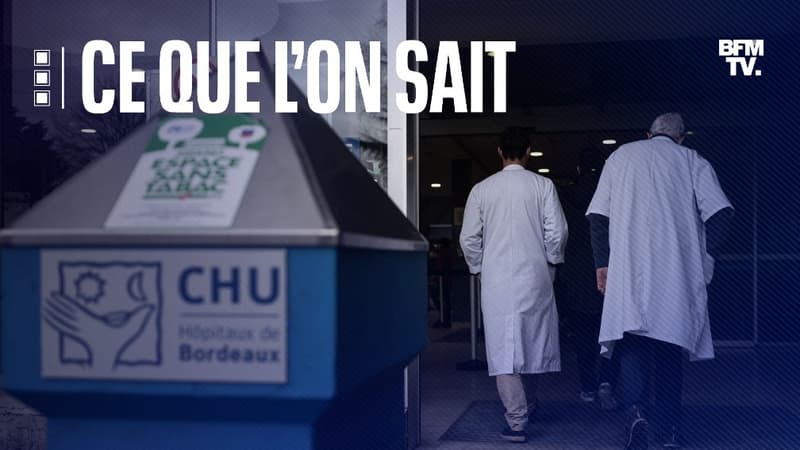One death, twelve cases… Health authorities took stock this Wednesday of the evolution of cases of botulism, a rare but serious neurological disease, detected in France in recent days.
• Where is the situation in France?
A first case of botulism occurred on Saturday at the Bordeaux University Hospital, intensive care doctor Benjamin Clouzeau explained this Wednesday during a press conference. Since then, 12 cases have been identified, eight of them treated at the Bordeaux University Hospital (seven in intensive care, five in respiratory support and one in a continuous care unit).
Two cases have been recorded in Île-de-France: a woman died and her companion is in intensive care. A case related to the others was detected in Spain, but “his days are not in danger,” said Dr. Clouzeau.
“Meeting so many patients at the same time is obviously exceptional,” he stressed this Wednesday.
• Where do these cases come from?
Informed of these cases on Monday, the Departmental Directorate for the Protection of the Population located their origin in a bar in Bordeaux, the Tchin Tchin Wine Bar. The deputy director of the DDPP, Thierry Touzet, stated on Wednesday that “there are no longer doubts about the causal relationship” between canned sardines served in the bar and the appearance of symptoms in those affected.
They all frequented this bar between Monday, September 4 and Sunday, September 10. The DDPP found “a real lack of control of the canning process”, declared Thierry Touzet, with a “very artisanal mode of operation” that must be improved. All the canned food has been seized there and it is no longer allowed to serve homemade products.
As the establishment’s clientele is rather international, some of the patients treated in France are of foreign origin, according to the authorities.
• What is botulism?
Botulism is a “rare but serious neurological condition” caused by a powerful neurotoxin produced by the bacteria. Clostridium botulinum, according to Public Health of France (SPF).
The most common way is foodborne botulism, according to this public establishment dependent on the Ministry of Health. It is developed “in preserves that have not gone through an extensive sterilization process: sausages, sausages or even preserves of family or artisanal origin,” according to the ARS.
• What do the authorities recommend?
SPF explains on your website that incubation period (time between the moment of contagion and the appearance of symptoms) for dietary botulism is on average 12 to 72 hours, but it depends on the amount and type of toxin ingested. Due to this incubation period, authorities expect to see new cases this weekend.
Therefore, people who have visited the restaurant in question and present digestive signs (diarrhea, vomiting) or vision or speech problems should go to emergency services to receive antitoxin treatment.
According World Health Organization (WHO), UN agency, botulism can be fatal in between 5 and 10% of cases. Mortality is particularly high for people who do not receive early diagnosis.
“It is a disease that progresses very rapidly” and whose “signs are different from one patient to another,” Dr. Benjamin Clouzeau stressed on Wednesday.
Diagnosed patients receive a botulinum antitoxin and sometimes benefit from intensive respiratory care (assisted ventilation). “The vast majority of patients treated without delay recover without sequelae, but the duration of treatment and convalescence can last several months,” the ARS of Nouvelle-Aquitaine stated on Tuesday.
Source: BFM TV


